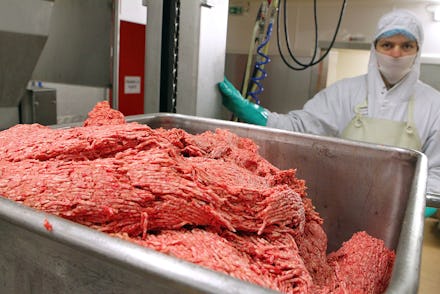Food Poisoning Symptoms: How to tell if what you're feeling is a stomach bug or something worse

The unforgettable meal you consumed hours ago has suddenly become unforgettable for a whole new reason. Your stomach starts to churn and tighten, you feel like you'll never be able to eat anything again and you even start feeling a bit dizzy.
Is that food poisoning? The delicious food you ate could be rebelling against your insides, or you could be sick with something totally unrelated to your last dish. While your assessment alone can't fully decipher the cause for sickness, there are some surefire signs that food is the culprit.
"Symptoms [of food poisoning] can show up as soon as a few hours after eating contaminated food, or as late as a few weeks later," Andy Barnett, medical director at GoHealth Urgent Care, said via email.
How long does it take for symptoms of food poisoning to set in?
Once the sickness sets in, expect it to last one to two days or up to 10 days, in some cases, Barnett explained.
Any nutritional benefits that may have accompanied the meal is no longer in your stomach. If the food sickness sets in soon after eating, "your body would likely not have the time to absorb the nutrients or calories from the food you had eaten," Barnett said.
Common causes of food poisoning
Eating refrigerated foods that have been left out for an extended period of time can lead to a higher risk of food poisoning, Barnett said, especially with foods like eggs, seafood, raw or undercooked chicken and other dairy products.
Bacteria that most commonly leads to poisoning include E. coli (most often found in beef and vegetables), salmonella (veggies, fruit, eggs, chicken, pork) campylobacter (dairy and chicken) and listeria (fruit and dairy), the Atlantic reported.
What to do when food poisoning hits
If you do get food poisoning, symptoms should improve on their own within two days. While you're sick, Barnett recommended improving your symptoms by "abstaining from food and drink for a few hours." When you're hungry again, Barnett said to ease back into eating with easy to digest and blander foods like saltine crackers, bananas and rice.
"Clear broths and liquids will also assist with staying hydrated," Barnett said. Most importantly, get some rest, because the dehydration and illness will temporarily weaken your body.
When is food poisoning cause for concern?
The Center for Disease Control and Prevention reported that 48 million Americans will become sick from food-borne illness each year, though some of these food sicknesses (E. coli and salmonella, for example) can be much more worrisome than others.
So how do you know if you have common food poisoning or something more severe? Though the symptoms for food poisoning, the flu and other food-borne illnesses are similar — cramps, nausea, diarrhea and vomiting — there are some warning signs anyone feeling ill after eating should be cautious of.
"If you experience signs of illness such as frequent vomiting in conjunction with trouble keeping liquid down, severe stomach pains, bloody vomit or stools and diarrhea lasting longer than three days, seek care from a doctor," Barnett said. Other red flag symptoms include "a temperature of more than 101.5 Fahrenheit, signs of dehydration including weakness and excessive thirst and neurological difficulties like blurry vision and tingling in the arms," Barnett said. In any of these cases, Barnett suggests seeking medical attention immediately.
While preventing food poisoning by practicing food safety is always a good idea, there's no surefire way to ensure your food won't poison you. Knowing what's happening to your body, how to take care of yourself and when you'll need additional medical help will help you if you do get sick.